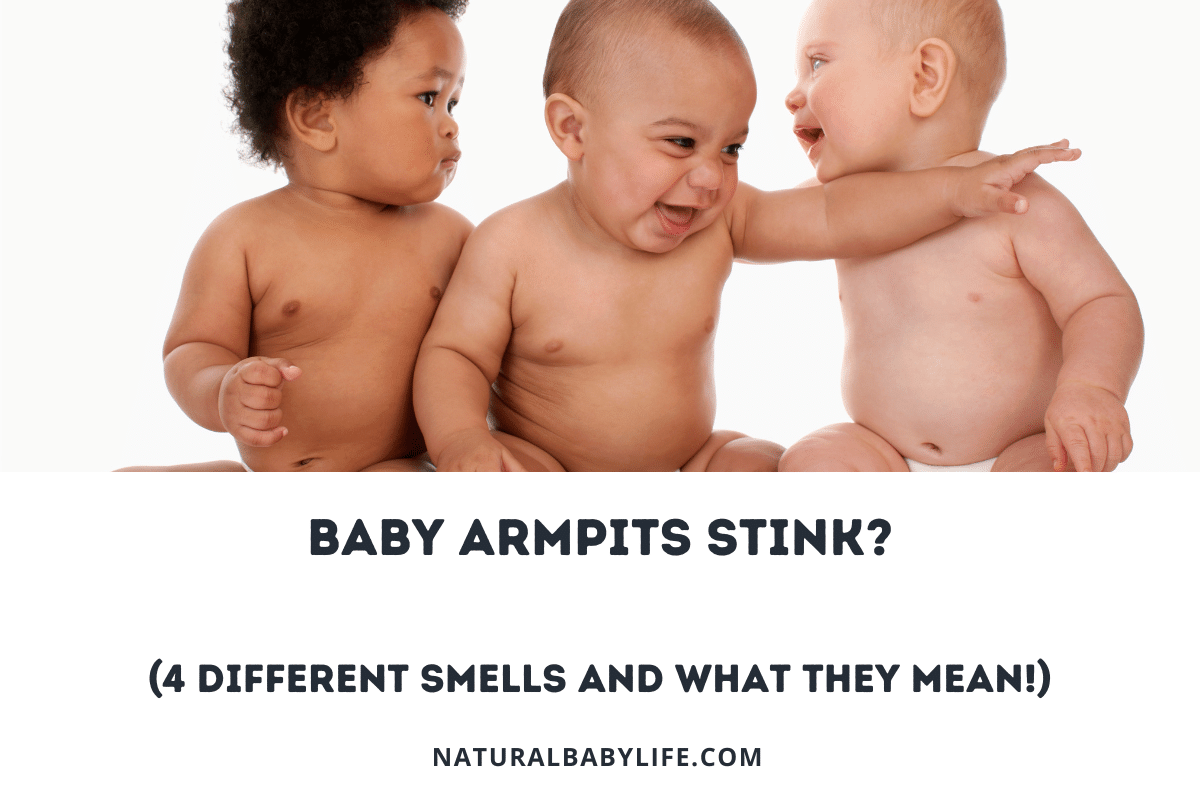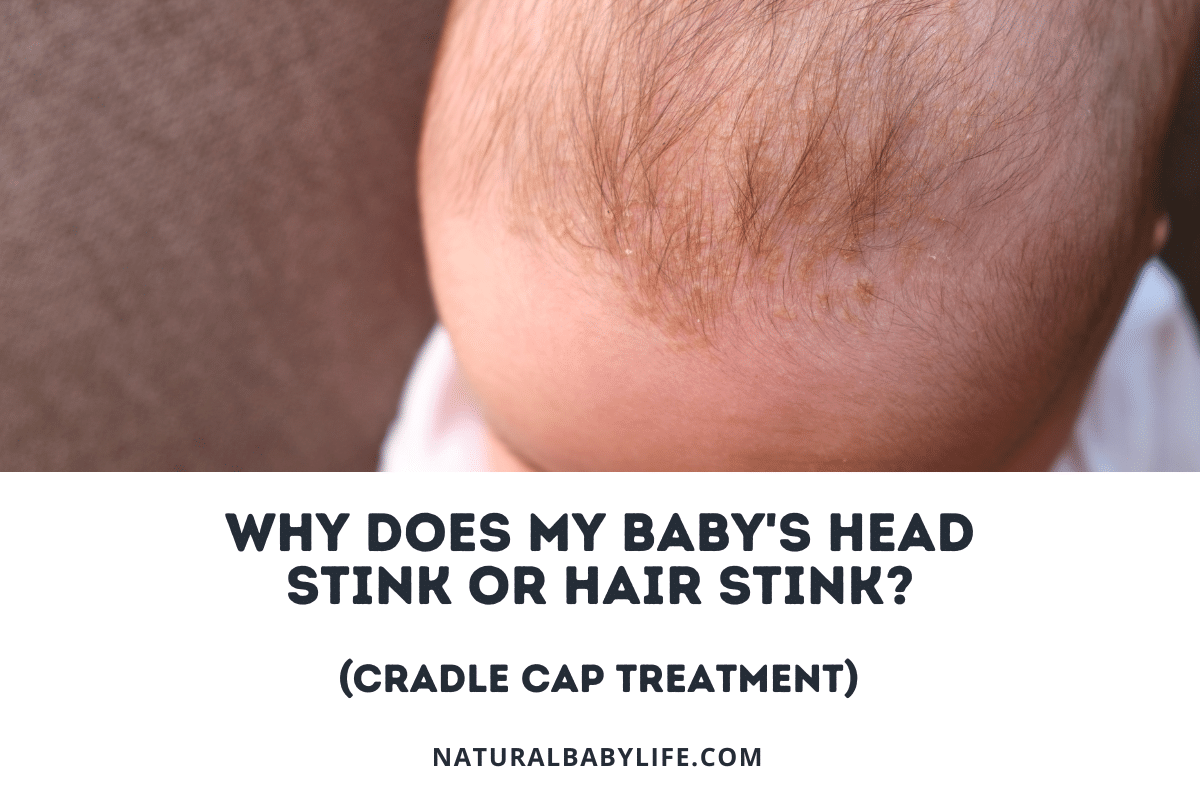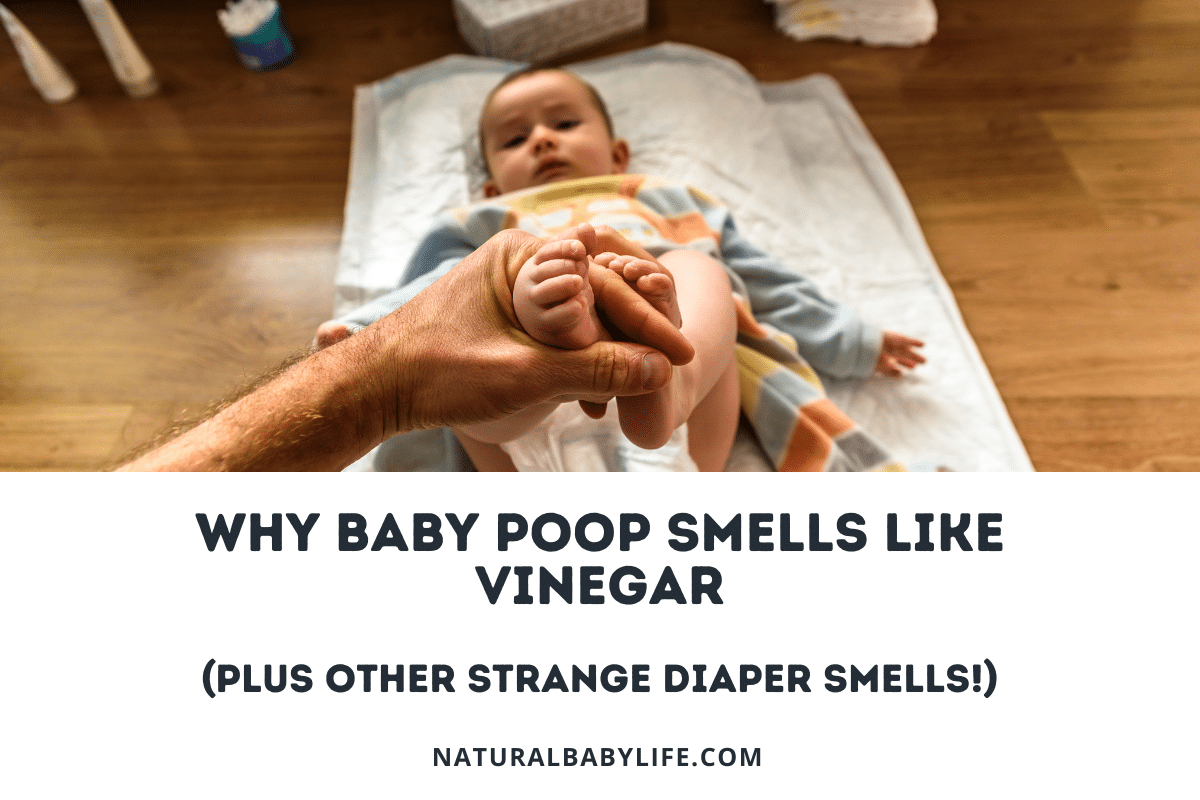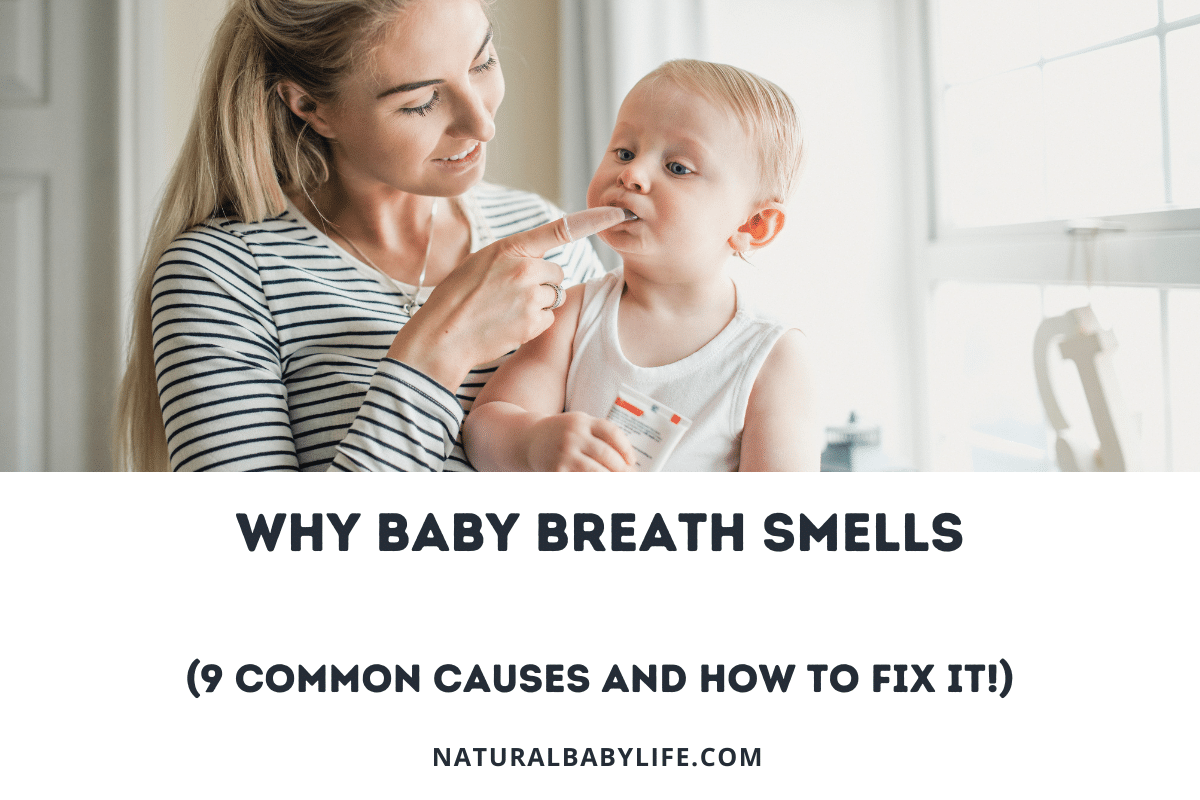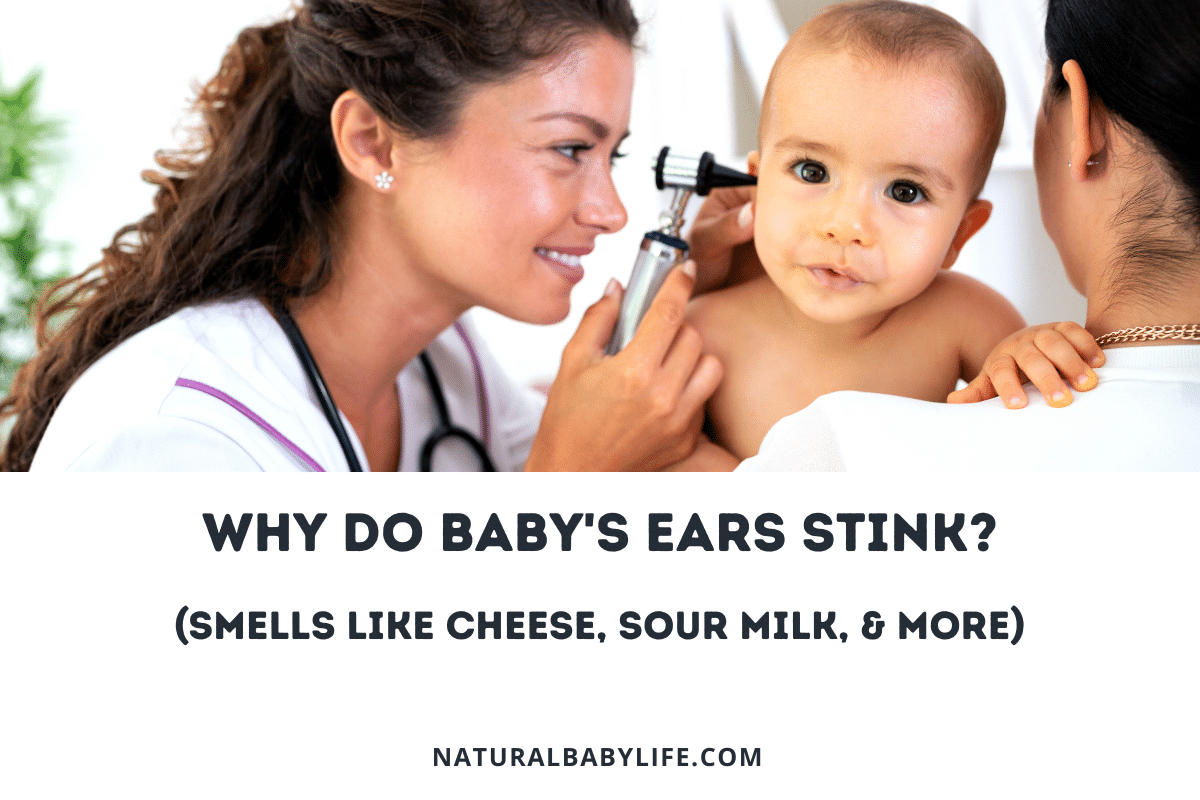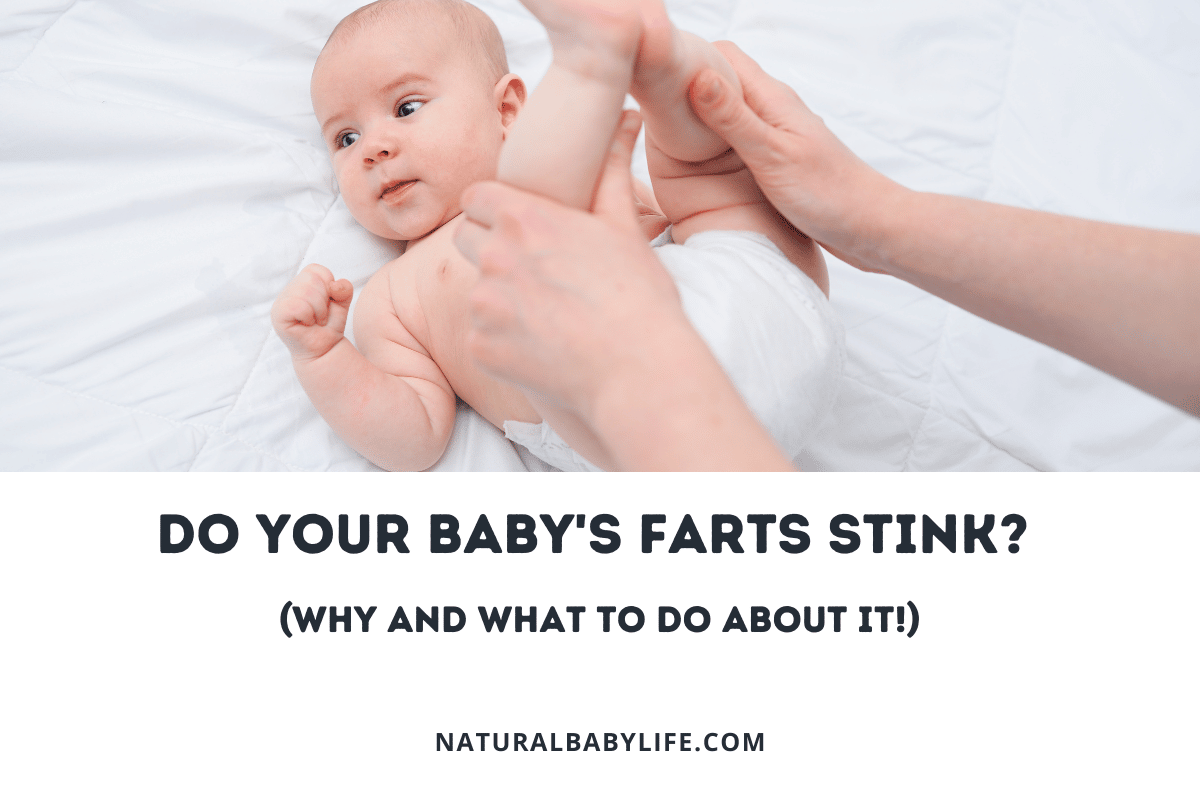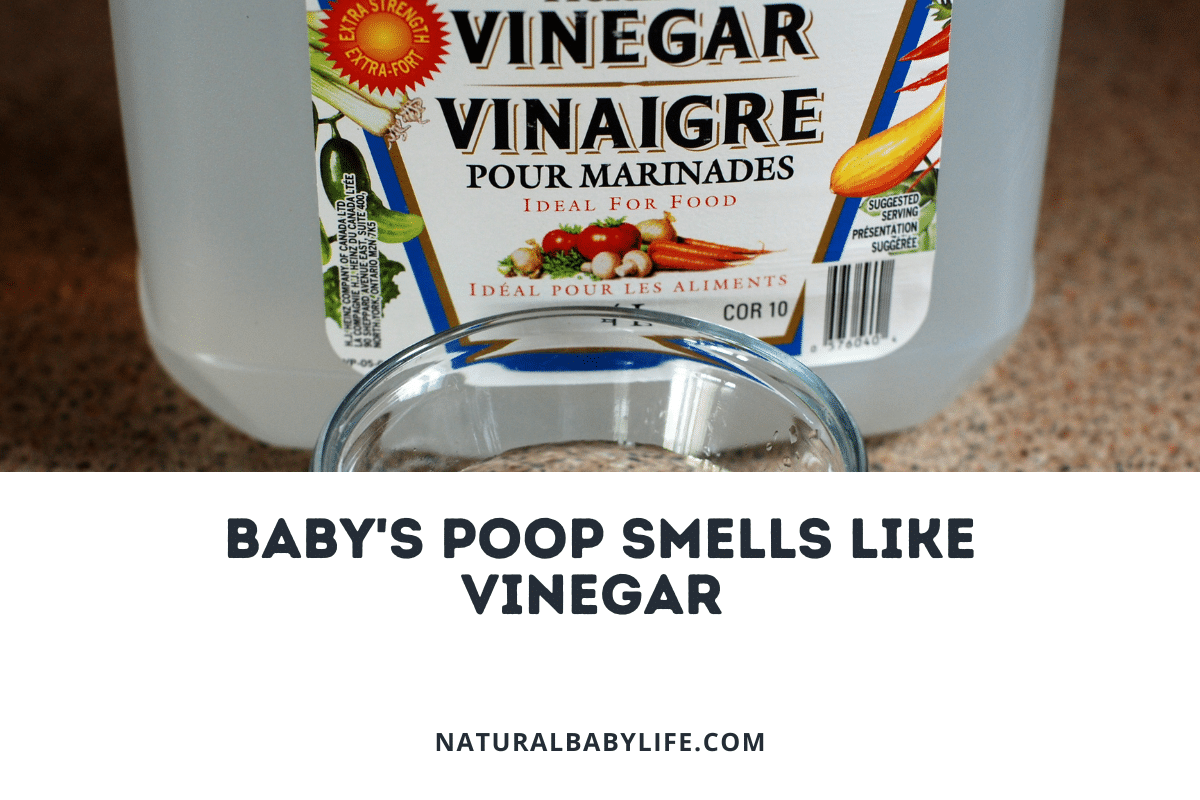It’s common for parents to rave about the sweet smell of their new baby, but there are some times when babies stink as well. Little ones can emit all kinds of strange odors, but what about when baby armpits stink?
When baby armpits smell bad, it’s usually caused by poor hygiene, but it can also be caused by a breastfeeding mother’s diet, the baby’s diet, or a skin rash. Practice good hygiene by thoroughly cleaning during bath time, drying baby’s skin completely, and keeping the skin moisturized with a safe and natural lotion.
Keep reading to learn how to interpret the smells coming from your little one’s armpits, and what you can do to keep your baby smelling fresh.

Table of Contents
Why do baby armpits stink?
Natural body odor usually kicks in around puberty – typically 9 to 14 years of age for boys, and 8 to 13 years for girls. But if your one-year-old suddenly starts exhibiting stinky pits, it’s understandable why you would be concerned.
Armpit smells in little kids and babies usually come happen as a result of the child’s environment, rather than biological processes. It’s possible that your baby’s unpleasant odor is coming from some type of disease, but metabolic diseases that cause nasty odors, such as Trimethylaminuria (fish odor syndrome), are extremely rare.
Is my baby’s stink normal?
If you suddenly notice that your baby’s armpits stink, it’s likely nothing to be concerned about. There are numerous smells that you might notice, but most of them are caused by poor hygiene and they may just mean your little one needs a bath.
Of course, the type of smell is going to determine what the issue is. Identifying the smell coming from your baby’s pits can help you figure out what’s causing it, and whether or not you should be worried.
Baby armpits stink like cheese
If your baby suddenly smells like cheese, it’s probably a hygiene issue rather than anything biological. Babies with those super cute rolls of fat can get milk and spit-up caught between the folds of their skin.
The milk mixture rubs between the folds so the heat and friction can cause redness, irritation, and a nasty, cheesy odor. This condition is known as ‘milk neck,’ but can actually occur in any part of the body, including the armpits. Milk neck can quickly cause bleeding, or even lead to a yeast infection, so you’ll want to address the issue immediately.
The key to beating the cheesy smell is pretty straightforward:
- Practice Good Hygiene – Milk can stay hidden between the folds of your baby’s skin even after a quick bath or wipe-down. If you’re noticing a cheesy odor, pay special attention to the creases and folds of your baby’s skin while you’re giving them a bath. You’ll also want to aim for a thorough bath at least once a day until the icky smell has disappeared. If you don’t have time to give your little one a daily bath, then use a baby wipe to tackle any hidden milk or saliva spots.
- Stay Dry – Cheesy armpits thrive on the dampness that can develop between the folds of your baby’s skin. Make sure your baby’s skin is as dry as possible after bathing, and invest in some loose-fitting clothing that won’t hold moisture in those areas.
- Be Proactive – It’s easier to prevent cheesy pits than it is to get rid of them. Even if you’ve only noticed a whiff of cheese-smell coming from your baby, take the opportunity to really double-down on your baby’s hygiene. Preventative care will keep your baby happier, and smelling fresh and clean.
Baby armpits smell like onions
If your baby’s armpits smell like onions, the most likely culprit might actually be mom’s diet! Breastfeeding mothers likely know that the food they eat can change the composition of their breastmilk. Some types of food can lead to an oniony smell in breastmilk, which is then passed along to the baby. If you notice your breastmilk and/or baby smell like onions, try cutting these foods out of your diet, and see if it helps any:
- Onions
- Garlic
- Fenugreek
- Decaf coffee
Sometimes, the onion smell might not come from what your baby is eating. Although rare, it’s possible for babies to exhibit bromhidrosis, or excess body odor. Bromhidrosis is a medical condition that runs in families, so if you have a family history of chronic body odor, your baby might suffer from it as well.
If this is the case, body odor is treatable, although you’ll want to be careful using any treatments on a small baby. First, you’ll want to consult your doctor to verify that your baby actually has bromhidrosis.
Remember, the condition is very rare and environmental factors are far more likely to be the cause of your baby’s stinky armpits. If your little one does have a body odor problem, you can emphasize hygiene, keep your baby dry, and even look into some baby deodorant.
This product by Truly’s is an organic deodorant made specifically for kids. It has no parabens, is made with organic coconut oil, and is completely aluminum-free.
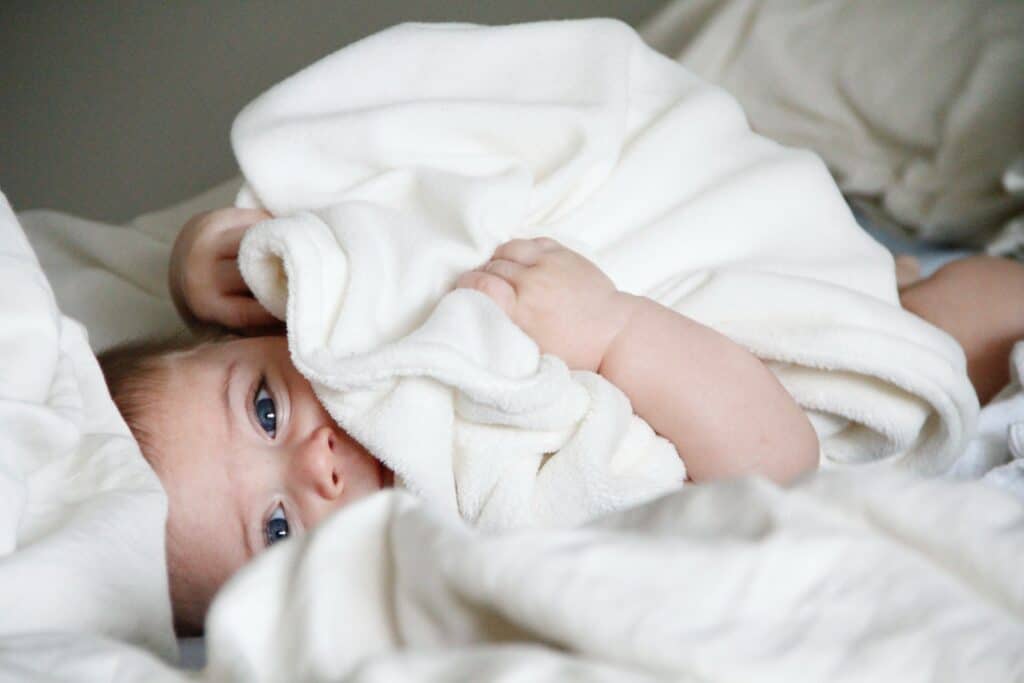
Baby armpits smell sour
Any sour smells coming from your baby’s armpits is likely caused by a lack of proper hygiene. Rather than the cheesy smell that can be caused by trapped milk, sour armpits are likely caused by dirt and sweat trapped in their underarm area. Luckily, this particular smell has a straightforward cure:
- Bathe your baby regularly, and pay particular attention to their armpit area.
- Use baby shampoos and a gentle washcloth to scrub away dirt and dust. Even little babies can pick up some nasty amounts of dirt.
- Pat your baby dry after their bath, and use a baby-friendly moisturizer to keep their skin healthy.
- Keep your baby in dry, clean clothing. If they spit-up or have a blowout, change them into fresh clothes immediately.
- Try to place your baby on a clean blanket for tummy-time, rather than directly on a dirty floor. Keep your little one’s high chair, pack-and-play, and other toys clean and dirt-free.
Baby armpits smell musty
A musty odor coming from your baby may be caused by Phenylketonuria, also called PKU. This is a metabolic disorder that hurts the body’s ability to process the amino acid phenylalanine. This particular amino acid is found in most high-protein foods we eat (nuts, beans, eggs, dairy, meat, etc.) If an individual can’t process phenylalanine, the amino acid can accumulate in the body and cause health problems.
A baby with PKU is likely to have a musty smell emanating from their sweat and/or urine, in addition to other symptoms. These symptoms don’t usually emerge until a baby is three months old, and some babies only show symptoms when they begin to eat solid foods. In addition to the musty smell, a baby with PKU might have:
- Pale skin, eyes, or hair (due to a lack of melanin)
- Irritability and fussiness
- Rashes or eczema
- Chronic vomiting
- Weakness or lethargy
If your baby was born in the United States, they were tested for PKU before leaving the hospital. The heel-prick test is required by law, and you would be immediately notified by the doctor if your child has PKU.
If your child has tested negative for PKU and still emits a musty smell, check in with your doctor. They’ll be able to determine what might be causing the smell and recommend any treatment options.
Baby armpit is red and smelly
If your baby’s armpit is smelly and red, they’re likely dealing with a rash.
There are several types of rashes that can affect your baby, including erythema toxicum, candida, eczema, contact dermatitis, and heat rash. Try to keep the red area clean and dry, and if the rash persists for more than 24 hours, check with your doctor. They’ll be able to determine the type of rash and recommend treatment options.
How to treat a baby’s armpit rash
Most armpit rashes can be treated the same way:
- Gently clean the rash with cool or slightly warm water.
- Avoid frequent baths or vigorous scrubbing, as it can damage the skin.
- Use a gentle, natural moisturizer, such as this Baby Bum coconut balm.
- Keep the rash loosely covered, and avoid tight or rubbing clothing.
If the rash seems particularly uncomfortable or won’t go away, check with your doctor. They may recommend some medications that can help.
What about thrush under a baby’s armpit?
Thrush is a particular type of rash that requires medicated treatment. It’s caused by a type of fungus called Candida, which is the same type of fungus that causes vaginal yeast infections, diaper rashes, and athlete’s foot. If your baby’s armpit rash refuses to go away, a doctor can take a look and determine whether the rash is actually thrush.
If your baby does develop thrush in their armpit, their doctor may prescribe an anti-fungal to treat the area. A skin rash is usually treated with anti-fungal spray, ointment, or cream. Your doctor will be able to recommend medication that is safe for your baby. Treatment can take up to two weeks.
Baby armpit cheese (white stuff)
If you’ve already read the section of this article dealing with cheesy-smelling armpits, then you know that milk and spit can become trapped between baby’s skin and fat folds. Sometimes the trapped milk can become so thick that you’ll see white, cheesy-looking residue between the folds.
This ‘armpit cheese’ can smell terrible and irritate your baby’s sensitive underarm skin. You’ll want to follow the same steps recommended above to keep your little one’s skin clean and dry:
- Bathe or wipe down the affected area daily. Be gentle, as the skin can be irritated and raw.
- Keep your baby’s cleaned armpits dry by putting your baby in loose clothing that won’t rub. You can use a natural moisturizer to help protect any damaged skin.
- Be proactive, and don’t let the cheesy stuff build up in the first place.
Are smelly baby armpits a cause for concern?
Although a little bit of smell isn’t a big deal, there are times you’ll want to consult with a doctor right away:
- Musty smell. If your baby smells musty and tested positive for Phenylketonuria, a doctor will need to be involved with treatment. Untreated PKU can cause major health and developmental problems.
- If your baby’s smelly armpits look raw or are bleeding, visit a doctor. They’ll be able to recommend medications that can help heal the skin and tackle the smell.
- A rash that doesn’t go away after a day or two of home treatment should be looked at by a doctor. It might be Candida (thrush), in which case it will need an anti-fungal cream in order to disappear completely.
- If your baby continues to smell stinky and nothing seems to help, it’s never a bad idea to check in with a pediatrician. They can take a look at any other symptoms and figure out the cause of the smell.
- Additional symptoms. As always, go see a doctor if any additional and concerning symptoms accompany the rash. Dehydration, lack of energy, or skin irritation should all be checked out by a professional.
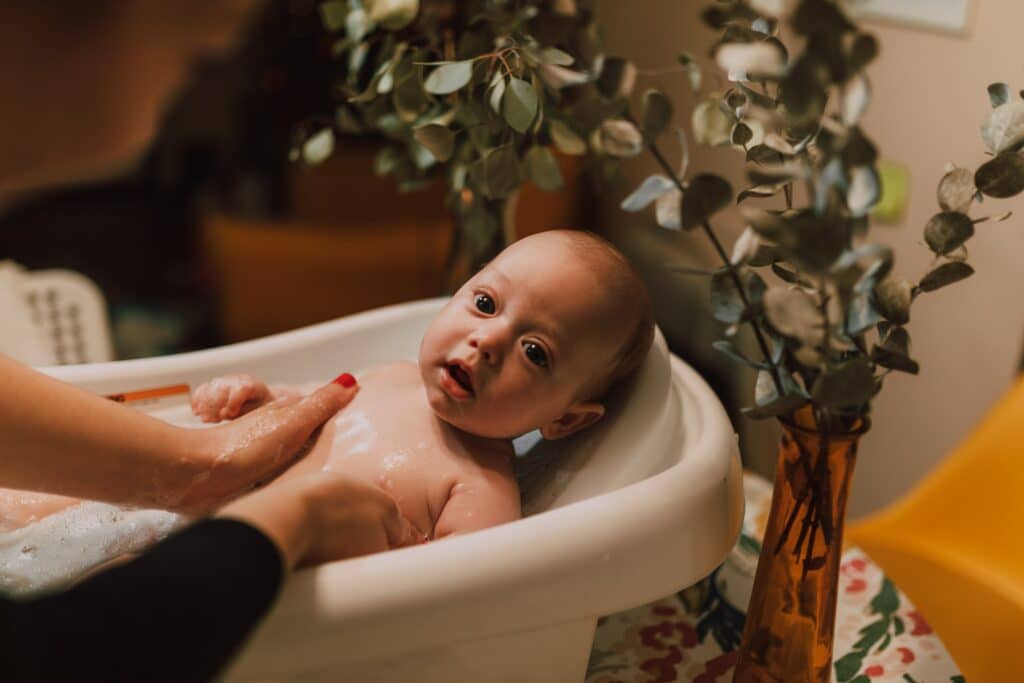
How to clean baby armpits to get rid of the smell
While there are numerous causes of stinky armpits in babies, most of the time, a good cleaning will do the trick. To clean your baby’s armpits and get rid of the smell, do the following:
- Once a day, gently clean your baby’s armpits with cool or slightly warm water (you can do this during bath time). Use a soft washcloth to remove any accumulated material between your baby’s skin folds.
- Dry your baby using a soft towel and gentle patting motions. Rubbing with a towel can irritate tender skin.
- Use a natural moisturizer such as this Baby Bum coconut balm. If your doctor has given you the okay, you can also apply a kid-friendly deodorant.
- Put your baby in loose, cotton clothing that will help wick moisture away from their armpits.
Frequently Asked Questions (FAQs)
How often should you bathe your baby?
Try to bathe your baby no more than once a day. Extra baths can actually dry out the skin and cause irritation or eczema. Experts recommend you only bathe newborns once or twice a week.
Is it normal for a 1 year old to have smelly armpits?
While there are numerous causes of smelly armpits in babies, it’s not a cause for concern in most cases. If your baby has any other symptoms or the smell won’t go away even after a thorough cleaning, talk to your child’s doctor.
Why does my baby’s sweat smell so bad?
While it is rare, some babies do have body odor. Sometimes it can also happen due to certain foods that your baby is eating or even food they’re getting through the mother’s breastmilk.
Why does my child’s armpits smell so bad?
Smelly armpits in babies is generally due to poor hygiene. The best way to get rid of the smell is to give your baby a bath and ensure you get every fold to get rid of any “armpit cheese” that may be contributing to the smell.
What is the white stuff under babies armpits?
Sometimes babies get armpit cheese, which is the same thing as “neck cheese,” just in a different area. This usually happens when milk or formula gets into the folds of their skin, leading to it drying and causing an unpleasant odor and substance.
Conclusion
While babies can often have a pleasant smell, especially after a bath, unpleasant odors happen as well. If you’ve ever wondered why baby armpits stink, you’re not alone.
In most cases, if your baby’s armpits stink, they likely just need a bath. However, in some rare cases, this could be a sign of a more serious issue. If you notice any other symptoms or have any concerns, be sure to consult your child’s doctor.

